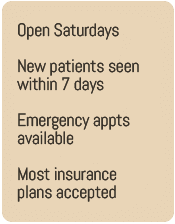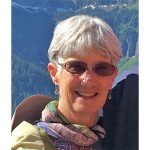Breast Cancer Survivor Shares Her Journey
Sue Knox, who is now 64, was diagnosed with stage three breast cancer in August of 2015. Today, she is proudly disease-free. Recently, she shared her story with Personalized Hematology-Oncology of Wake Forest in hopes of helping others with their own journey with cancer.
What were your thoughts when they told you that you do have breast cancer?
Well, I don’t know, sometimes I think I’m a little bit different than most people but maybe not. I found the tumor myself, and I knew immediately in my heart what it was. When the doctor did all the tests and the labs said “yes, it is breast cancer” – my thought was: “okay, I already know that, what do we do next?”
What events led up to your diagnosis? Do you regularly do a self-check? Or how often would you do that?
I went for my yearly mammogram. I paid the extra money to get the 3-D mammogram when it became available and kept up routine appointments with my doctor. I guess you could say I did self-check. I’m a creature of habit and every time I take a shower, I lather my body with lotion when I get out. That’s how I found the tumor. I was putting lotion on, and I felt it. I didn’t have a specific day when I said I’m going to do a self-exam. I kind of did it all the time.
How did you choose to share your diagnosis with your family and friends?
I got the diagnosis on a Friday and was scheduled to go visit my brother in Pennsylvania. I am 64 now, and I was 62 when I was diagnosed. So basically, I have my brothers and my sons, and when I went to visit my brothers, I told two of them in person. My son and my third brother I talked to on the phone because they were farther away.
Was there anything your friends or family members said to you that meant the most to you while you were trying to beat your breast cancer?
I don’t think there was anything in particular they said. I have a group of friends from college – there’s five of us; one of us had been diagnosed 20 years ago with breast cancer, and another had been diagnosed five years ago with breast cancer. So, when I was diagnosed, the support of that little group because two of us had already been there was really important.
It was having somebody that had gone through something similar to what I’d gone through. There wasn’t anything in particular that someone said but just having the support of the people around me made the difference.
Can you talk about your course of treatment and how long you were in treatment?
My breast surgeon is the one that referred me to Dr. Castillos, and when I went to see him for my first big consultation I had asked my brother in Pennsylvania if he would come down and go with me because I’m by myself. My son was in Houston at the time, so I asked my brother to come and go with me. He and his wife, my sister-in-law, came down and went with me to the appointment.
Dr. Castillos was very thorough in what he said. I think one of the things I liked about him was when he said, “You do what I tell you to do, and I will keep you out of the hospital. We will get through this.”
He was just very confident, which is very comforting. I remember asking Dr. Castillos because I was by myself: “Am I going to be able to bring myself to treatment and drive myself home?”
He said, “Oh yeah sure, you’re going to be fine.”
My brother coughed up and said, “Well no, we’re going to come down for her first chemo.”
So, you know again just having that support of friends and family around you was really comforting. I went through two rounds of chemo.
The first round I got two different drugs. That’s the one that really…well I don’t know they both hit me pretty hard actually. That’s the one where I lost my hair and my immune system went to pot.
I really couldn’t get out, go anywhere, or do anything. I had every side effect that they had … and then some. I think I had some that weren’t even in the books. Got through that, that was six months, well three months. September, October, November, yea that was three months.
Then I started the second round of chemo for twelve weeks, three months with one drug. I went back to work, typically people didn’t have this bad of a reaction to this particular drug, but I did. I was very sick the whole time, and I was out of work a lot.
After I finished that, I went through five weeks of radiation. The radiation wouldn’t have been that bad, but I was so sick from chemo. (Laughs.) It was not fun.
What was your biggest challenge during the cancer treatment?
I think the biggest challenge was being by myself. I mean my brother came down several times and took me to chemo. And I have a very good friend who lives nearby who took me to chemo the other times when ted wasn’t there.
I kept telling people during my chemo days I’m fine because the day before, the day of, and the day after chemo I’m pumped up with steroids; I feel really good, and I feel pretty good that whole week.
It’s the week after chemo when my immune system would tank. I would not be able to get off the couch, and you know I would be by myself. And the second round of chemo I was so sick because the drug actually caused me a lot of gastrointestinal problems. I was really sick and again by myself. Because I was working I think people thought, “Oh, you’re back to work your fine now.”
And that’s not the case. I was really sick and just being by myself was the biggest challenge. The side effects were annoying (laughs), and I couldn’t eat because I couldn’t taste. And so even though the side effects were challenging at the time, I knew that wasn’t going to be forever. It was really hard going through it without having someone living with you and helping you with certain things.
When you were talking about going back to work, was it very physically demanding on you?
I was a field manager for a large laboratory. I was in phlebotomy, and I had a team of supervisors and phlebotomists that worked for me. It was a very stressful job – very stressful.
I used to work 10 and 12-hour days, six to seven days a week, and I couldn’t do it anymore. I just physically could not do it. I think cancer changes your perspective on a lot of things. I didn’t want to do it anymore. I wanted to live my life and not work my life. Between the stress of the job and me not being able to put in the hours that I had worked before plus me being so sick; It was very difficult.
Once we finally figured out what was going on with my gastrointestinal system, Dr. Castillos referred me to a GI doctor. We figured out what was going on and got it treated. I felt better immediately – almost immediately, I got better.
But I still was not able to put in the hours and do the job like I felt I should be doing it. Eventually, it did lead to me losing my job after 31 years. Back in March when they let me go, I retired, and my life has been so much better ever since. (Laughs.) It was the best thing that could have happened to me. It was the universe putting me where I needed to be.
Were they willing to work with you?
I must say, my boss, in the beginning, could not have been more supportive. If I was sick, he let me go home. He was very, very supportive. I’ve got to say there for a while. I don’t know if it eventually got to a point where they were tired of being supportive, but I was having difficulties…
They talk about when you’re in chemo … you know people laugh about it … about Chemo brain but it’s a real thing. I mean these drugs that they give you not only destroy the bad cells, but they destroy some of the good cells too.
People I have talked to that have been through chemo say, “yes – it’s a real thing.” You don’t remember. You don’t respond the same way. Your judgment isn’t the same. It just has an effect on you.
I was taking drugs for the cancer, the GI issues, and I’m still taking drugs to treat some of the side effects. I had expressed concerns, but I really felt like my company failed in trying to help me at that point. Instead of saying, “There’s something going on Sue. It’s not like you to be making these mistakes. What’s going on?” – they just finally let me go.
What kind of things did you do to distract yourself when you were going through treatment or experiencing the side effects?
You know it’s funny because my sister-in-law gave me books, and I thought I’d like to read. This will be a fun time to read, but the chemo affected my eyesight to a certain extent. I couldn’t see as well, so I couldn’t read as well.
I couldn’t focus as well, and reading did not work for me. I did do some crossword puzzles, but mostly, I watched TV.
I couldn’t eat. Chemo affects your taste. Everything either tastes like metal or like cardboard. It’s not like when you have a cold, and you can’t taste but you eat anyway because you know you have to. I can’t put food in my mouth. It was really difficult to eat. I had a couple of things that I could eat, and that’s kind of what I lived on. I would force myself to eat some things, but it was really hard.
So, I would watch the Food Channel, and that sounds really weird. I would watch it all day and say, “When I get better I’m going to eat that!” So I did.
I learned a lot about cooking so now that I’m retired, I’m cooking more and cooking more healthy things. It really helped me out a lot, and I learned a lot while watching it.
My immune system and my white count got so low I couldn’t go out. I had no energy, so I was just pretty much sleeping and watching TV. I would get up and get the basic necessities done – anything I could do around the house.
If I had a little bit of energy, my house was set up so that the downstairs, I could walk in a circle. I would walk in a circle just to get myself moving a little bit.
You said you couldn’t really eat. Were there some things that you found that you could eat?
I could eat oatmeal, and I ate it every day. I could eat yogurt. I could sometimes get down a cup of soup or chicken soup. I could eat gummy bears. I drank Boost – the protein drinks. Those were my basics. Sometimes, I could eat an egg.
Since you had been watching the food channel, was there one dish you thought when I get better this is going to be the first thing I eat?
I don’t remember there being any one thing. I just wanted to be able to eat and taste!
Where would you say you are now in your journey with cancer?
I had a scan a year ago in September, and I had no evidence of disease. I still have neuropathy in my fingers and my feet as a result of the chemo, and I still get really tired. Sometimes, I still have that fatigue where you just hit the wall, but I feel good.
I feel really good. I’m exercising. The YMCA has a program for cancer survivors, and I went to one of the 12-week programs. It was the best thing I ever did, and I’m going to continue going to the Y to exercise.
What do the YMCA help you with there?
It’s twice a week for 12 weeks. They take you through all of the classes they have to offer.
They have a lot of things that are geared towards older people. You do aerobics, water aerobics, Zumba, strength training and working with weights. The program helps you get your strength and balance back and helps you get back everything you lost. It’s called Livestrong.
You have so much in common with the people there and understand each other so well even though you don’t know each other.
Knowing that you have been cleared of cancer, is there anything you would have done differently through your diagnosis and treatments?
I would not have gone back to work when I did but then again, I wouldn’t be where I am.
I think the one thing was … there were so many friends that said if you need me, call me. I knew that I could, and I knew they would come in a minute and help me with anything. But when you’re laying on the couch and all you want is a glass of water and you just don’t have the energy to go get up and get it, you’re not going to call a friend and ask “Hey, can you bring me a glass of water?”
My suggestion to people that know someone that’s alone and going through this, just drop by or just call and say, “I’m right around the corner. Do you need anything? I’m going to stop by.” … Rather than putting it on the person that is sick saying I need this or I need that.
If somebody had just come by and said, “While I’m here, I’m going to grab the cleaning stuff and clean the bathroom for you.” Those things were really hard for me to get done, but I didn’t want to call somebody and say will you come over and do this for me.
Other than that, I think I wouldn’t have. Hindsight’s different. I wish I would have pushed myself to move about more but I just didn’t have the energy.
Is there any advice or words of wisdom that you could give to someone who’s received a similar diagnosis?
I would say it’s not the end of the world. When I called and told my son and at that time I didn’t know it was stage three, he just fell apart. I think he thought I was going to die.
But you know I said, “I’m going to be okay. I’m going to be okay, and I am okay.” When you get a diagnosis like that, especially when you’re talking about a stage three or four, your immediate thought is this is the end and it doesn’t have to be.
There are people out there to help you and support you and get you through this. You can get to the other side of it.
The other thing I would mention would be to go to Dr. Castillos. He was so supportive and fantastic. I couldn’t imagine going through this without him.




